CES 2024 was a showcase for how to shoehorn AI into next-generation cars
CES 2024 in Las Vegas underlined that future mobility will be shaped by AI, like it or not, as intelligent assistants emerge to guide, plan and converse with their human cargo
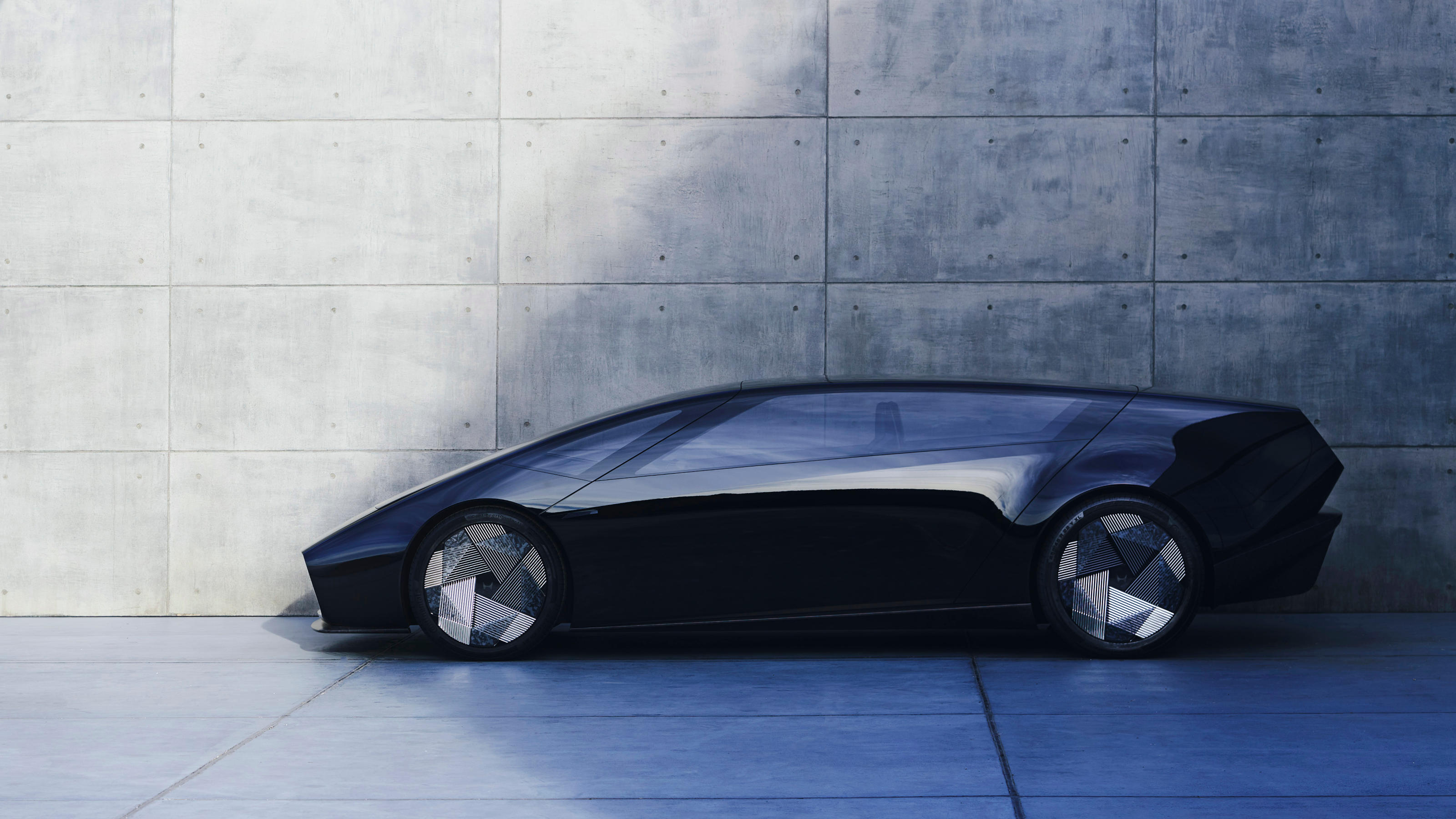
In recent years, shows like the Consumer Electronics Show in Las Vegas and Mobile World Congress in Barcelona and even Salone del Mobile in Milan have picked up the slack left by the mass abandonment of the traditional global auto show. With design and tech considered to be an integral part of private mobility, the halls at CES 2024 were unsurprisingly alive with new concepts for ways of keeping us safely entertained and informed while driving.
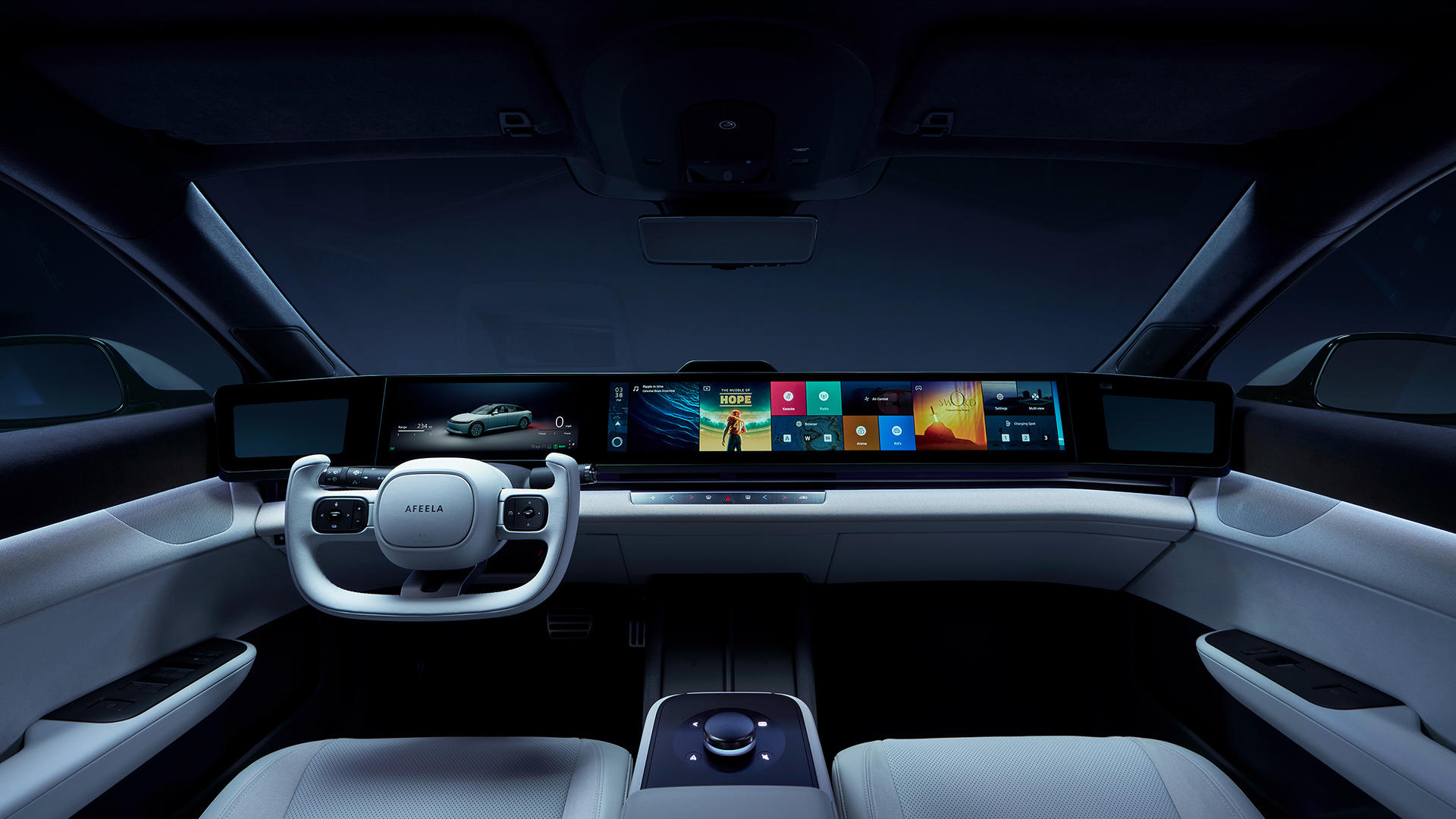
Sony Afeela EV concept interior
As a result, there was an increased focus on ways in which AI and autonomy could be used to make cargo hauling and deliveries much more efficient. Here are some of the many ways in which AI will find its way into our future dashboards, as well as visions of the cars themselves.
CES 2024: future mobility and AI
Volkswagen makes a date with ChatGPT
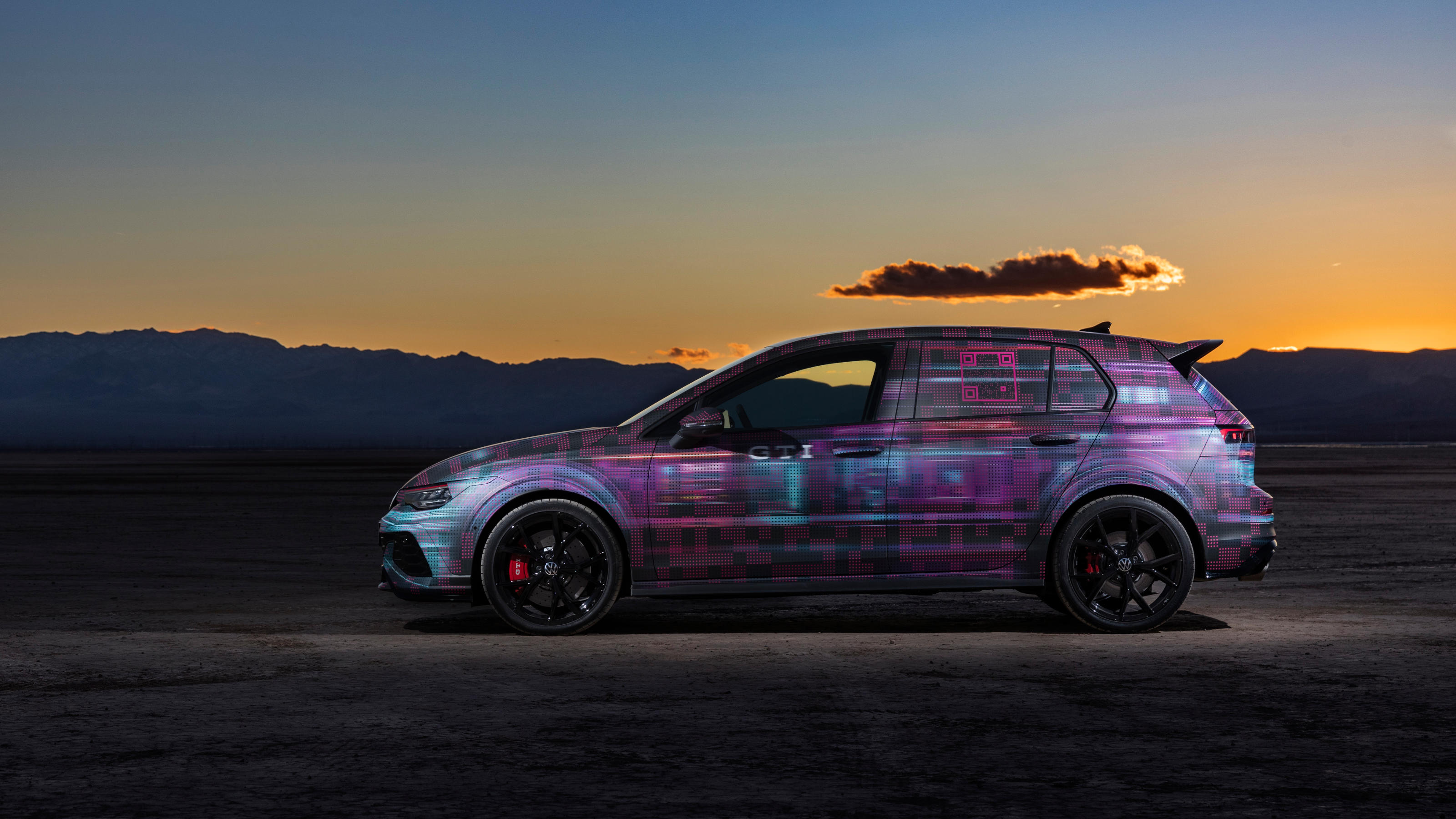
Volkswagen Golf GTI Concept with ChatGPT
Volkswagen was one of several manufacturers making bold claims about how AI integration into future cars is going to reshape the way we use voice recognition and receive information. The company has worked with tech partners Cerence Inc to develop a ‘uniquely intelligent, automotive-grade ChatGPT integration’.

Volkswagen Golf GTI Concept with ChatGPT
The first cars to use VW’s IDA voice assistant should appear later in 2024, and will include the ID range of electric cars, as well as the latest generation of the Tiguan, Passat and Golf – the GTI Concept of which is shown here. The intention is to imbue cars with the same high-quality of voice recognition as Siri, Alexa or Google Assistant, fine-tuning the system to make it specific to the model, location and context.
Low-impact logistics with Kia’s PBV System
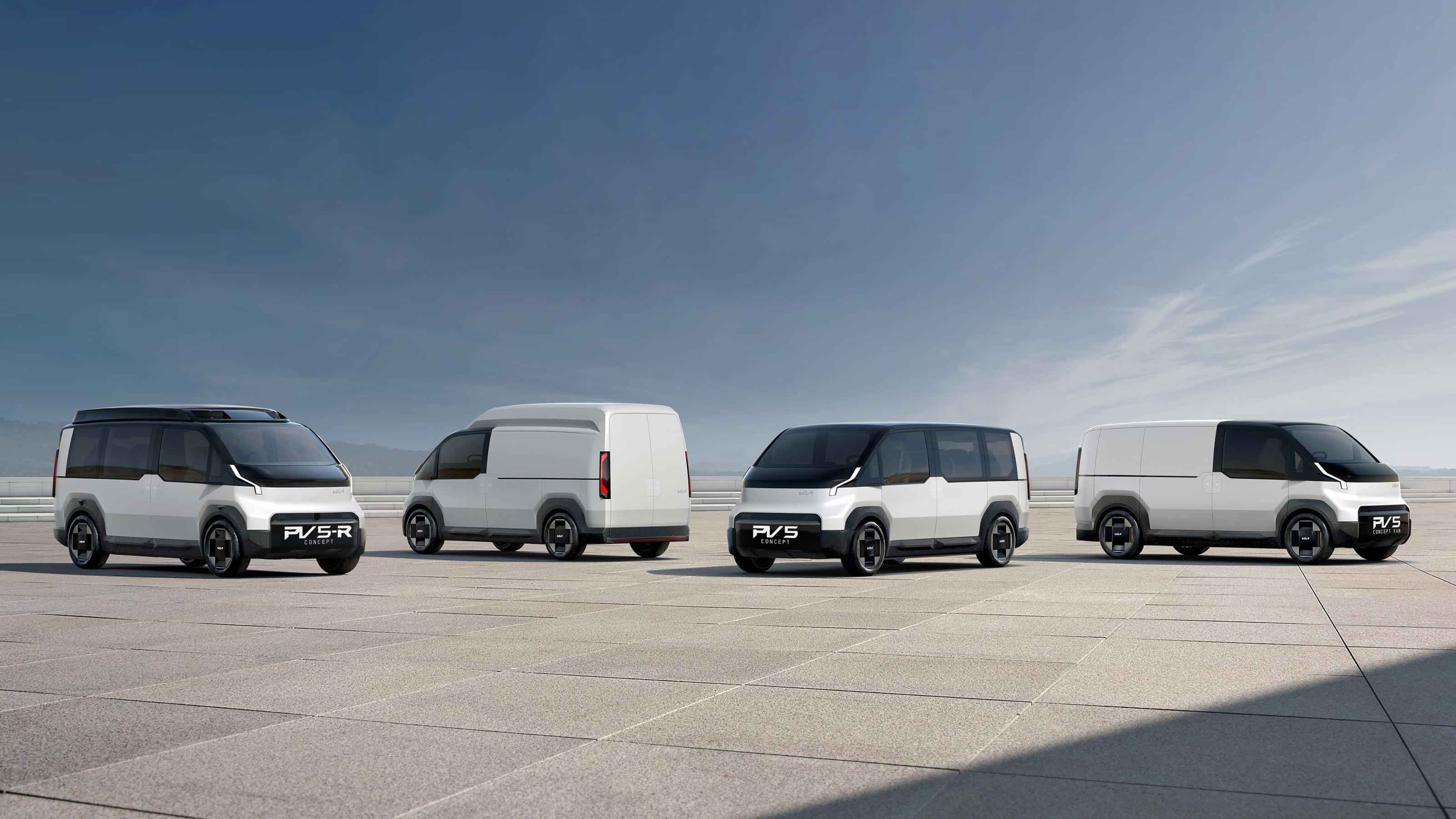
Kia PV5 Platform Beyond Vehicle concepts
Kia unleashed a collection of five new electric vehicles, all of which use the same modular system. The Platform Beyond Vehicle (PBV) debuted as the Concept PV7, PV5 and PV1, with the former and latter representing the largest and smallest manifestation of the approach, and the PV5 represented by three different iterations. All are initially aimed at commercial buyers, with potential applications including robotaxis, last mile delivery and larger logistics operations.
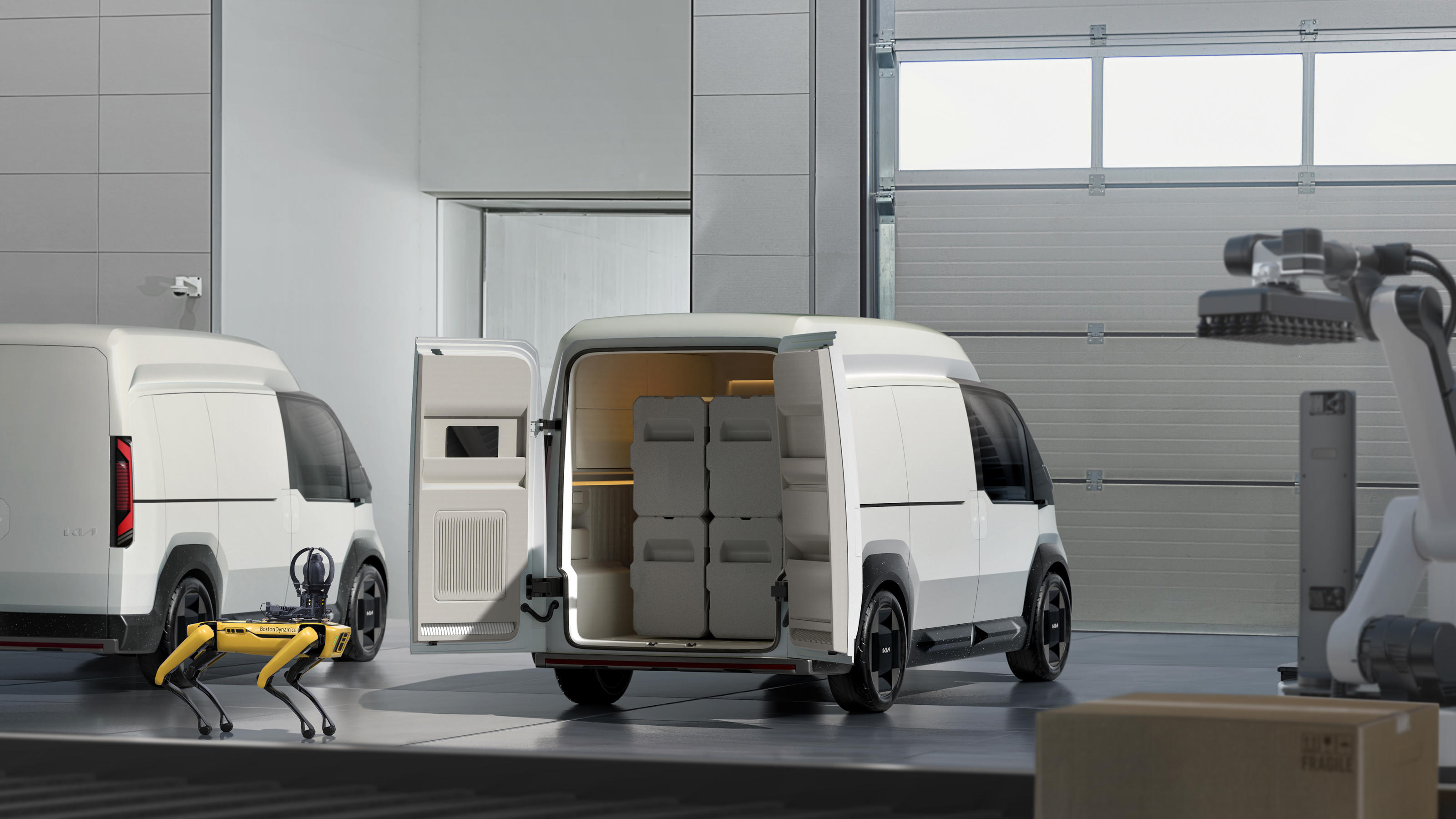
The proposal includes a collaboration with robot makers Boston Dynamics
There might also be potential passenger versions further down the line. The simple form language was driven by the need to maximise interior space and access, with lots of bio plastic, paint and recycled fabric, felt and yarns used in the interior.
Receive our daily digest of inspiration, escapism and design stories from around the world direct to your inbox.
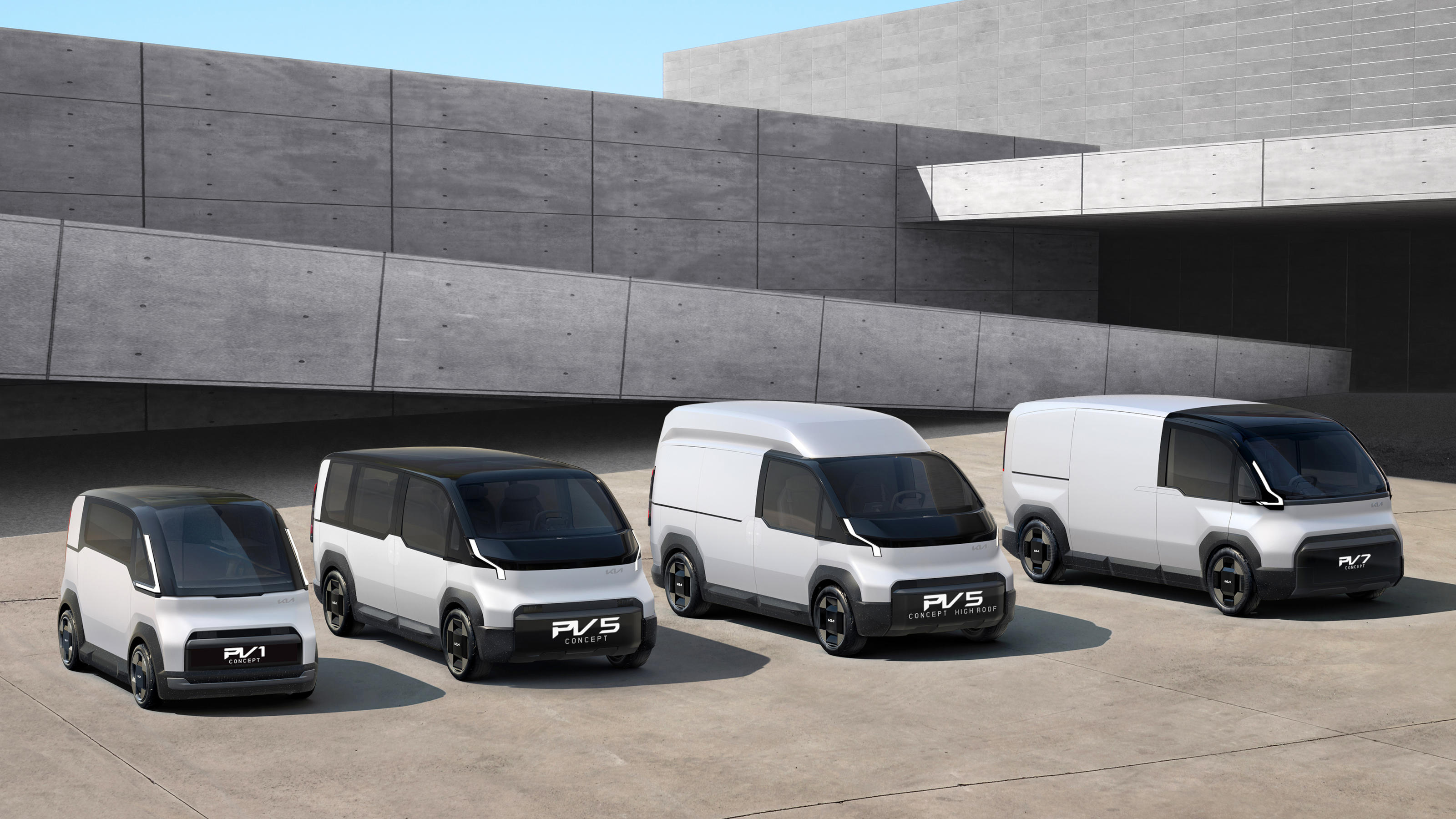
Kia Platform Beyond Vehicle Concept family, PV1, two variants of the PV5 and the PV7
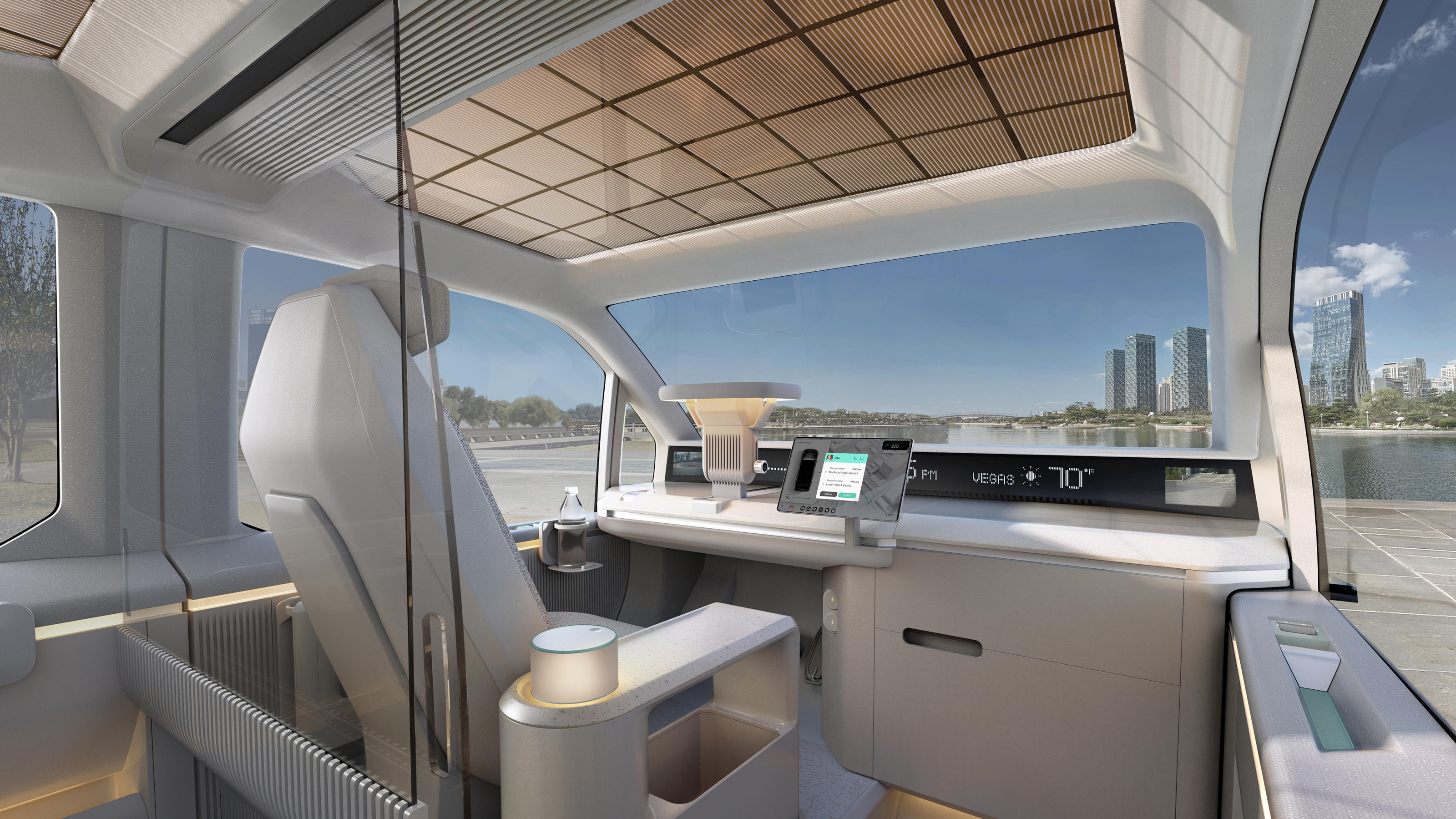
Kia's PBV family promises functional and flexible interiors
Hyundai gets ever closer to take-off
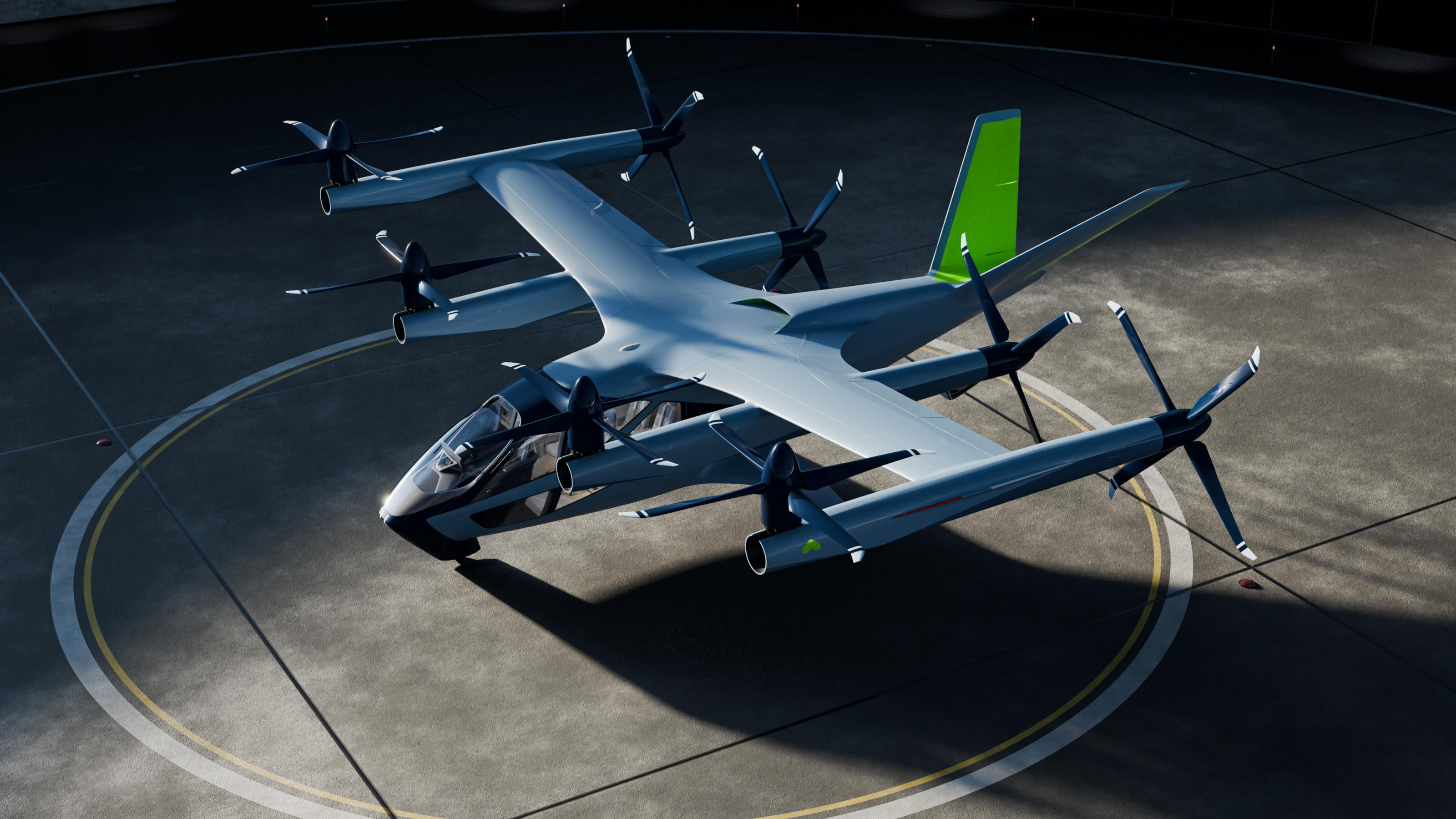
Supernall S-A2 eVTOL aircraft
Kia’s parent company Hyundai also had news, leading with the debut of the latest iteration of its proposed eVTOL craft, the Supernall S-A2. This five-seater (pilot plus four passengers) is part of an ongoing programme to reshape all aspects of urban mobility and find a reliable, efficient and safe replacement for the conventional helicopter.
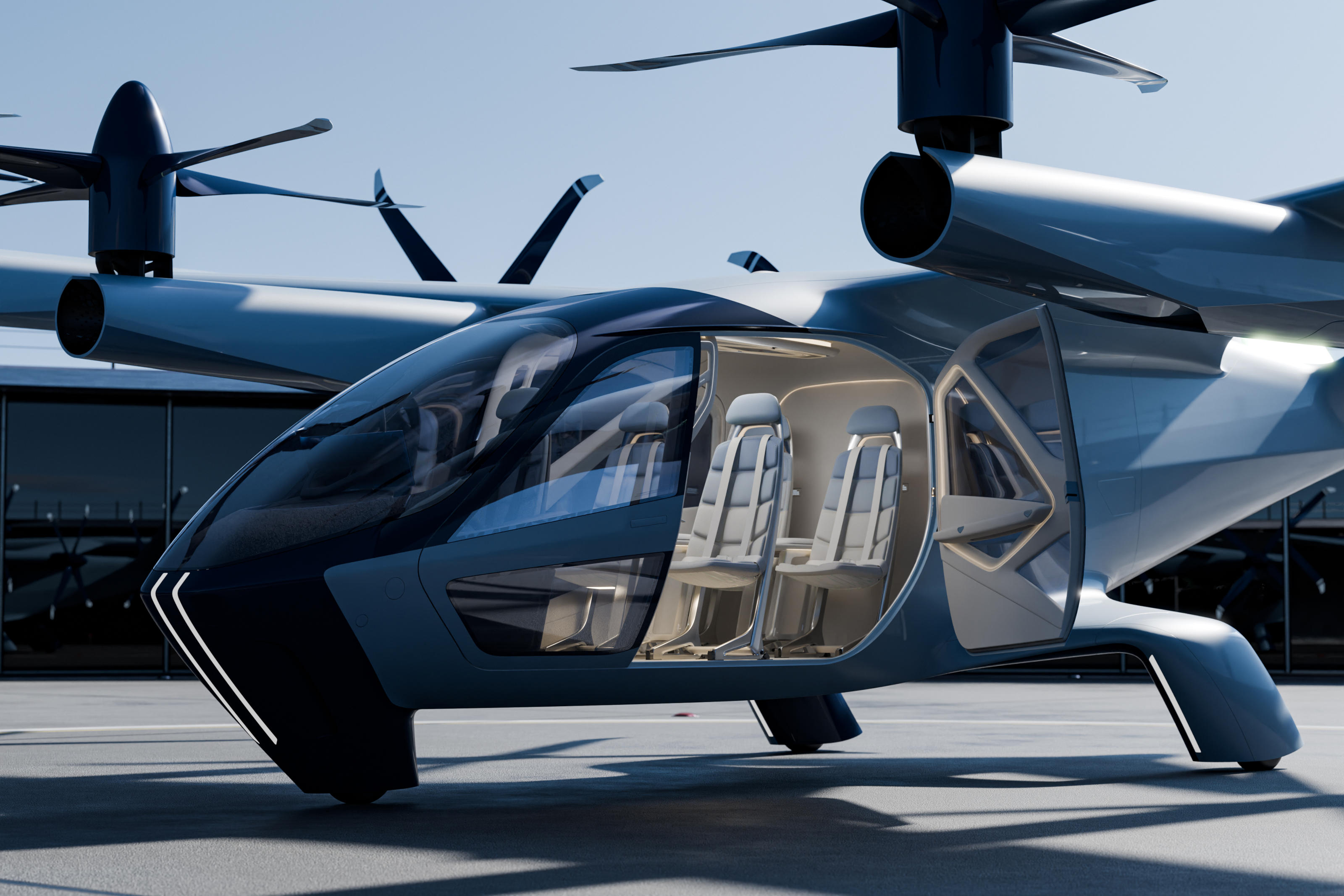
The S-A2 is a five seater eVTOL aircraft
The company also made some major strategic tech announcements. Chief amongst them was the news that Hyundai – a multinational conglomerate capable of building everything from elevators to oil tankers – is developing large-scale green hydrogen production methods, as well as ways to ‘transform environmental pollutants into clean hydrogen’.
Hyundai also launched its ‘Software-defined Everything’ (SDx) strategy, effectively detaching software development from automotive hardware to allow each to be independently updated. Naturally, AI plays a role, with the company’s own Large Language Model (LLM) forming the basis of a new in-car assistant and navigation system, as well as open-source kits for third-party apps.
Re-setting the EV with Honda’s 0 Series concepts

Honda 0 Series Space-Hub Concept
The art of the concept car was alive and well on the Honda stand with the announcement of a new ‘0 Series’ of electric cars to be sold around the world. The first Honda 0 Series models will go on sale in North America in 2026 and were previewed here by two concepts, the elegant Saloon and Space-Hub. The latter is a spacious people mover, with a fashion lounge-style interior, while the Saloon is especially sleek machine that promises to blend an ultra-efficient electric powertrain with exceptional efficiency.
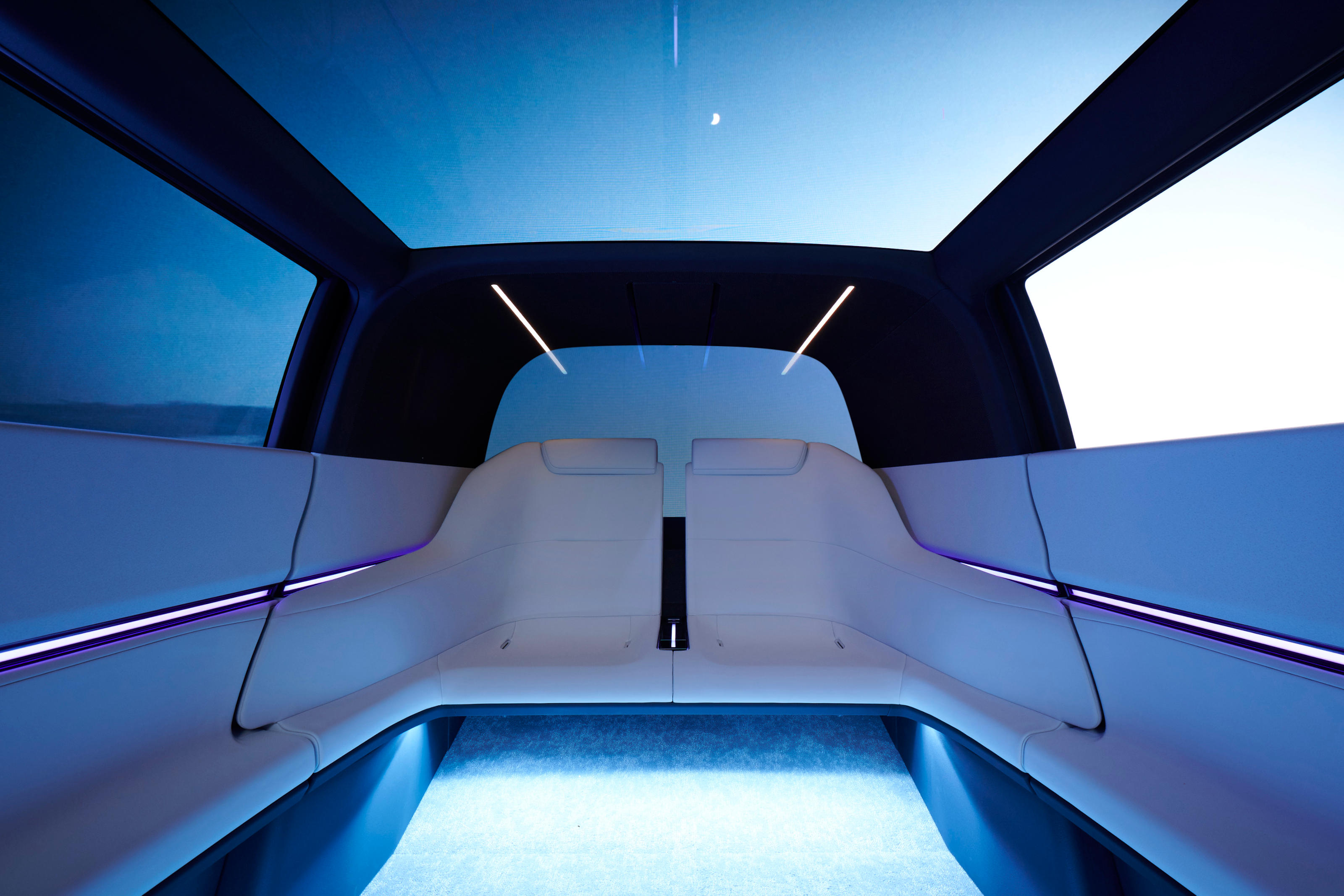
The interior of the Honda 0 Series Space-Hub Concept
The core values are ‘Thin, Light and Wise’, indicating that more manageable EVs are finally coming down the pipeline – a fitting approach for the ‘zero’ reset these cars represent. The company also debuted a new logo, or ‘H’ mark, for the first time since 1981. Besides their genuinely appealing looks, the two concepts should integrate Honda’s sophisticated automated driving system (available in the second half of the decade) and have long-life batteries thanks to sophisticated software management.
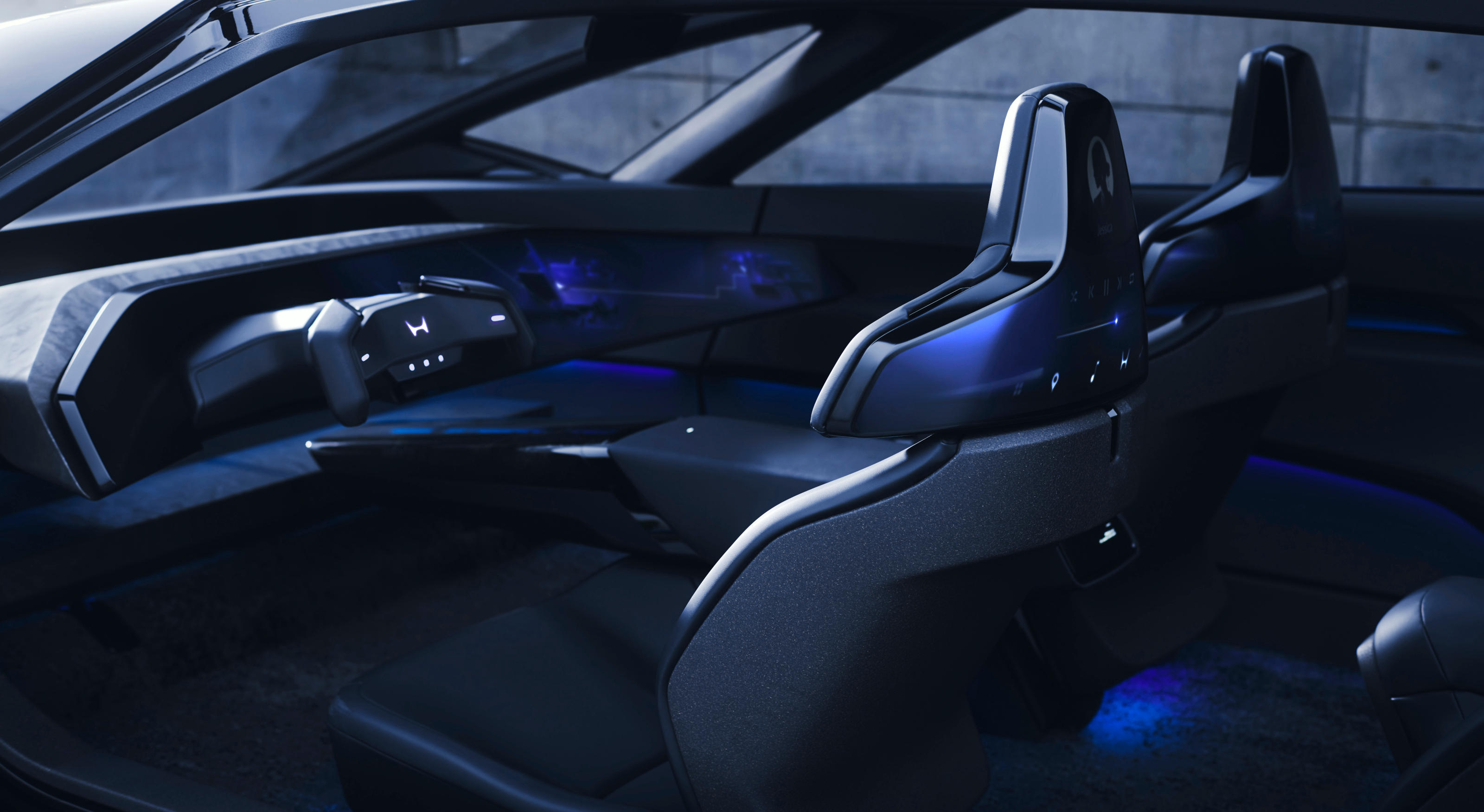
The interior of the Honda 0 Series Saloon Concept
When the Space-Hub finally makes it to production, expect the stark minimalism of the interior to be toned down somewhat, although there’ll still be generous and configurable space. More dubiously, Honda says that the 0 Series will use AI and big data to ‘learn the user’s preferences, such as music, as well as a driver’s behaviours and tendencies while driving, and … make various suggestions’. Modern cars that know you well are an inevitable sign of things to come.
Music and more from Mercedes-Benz
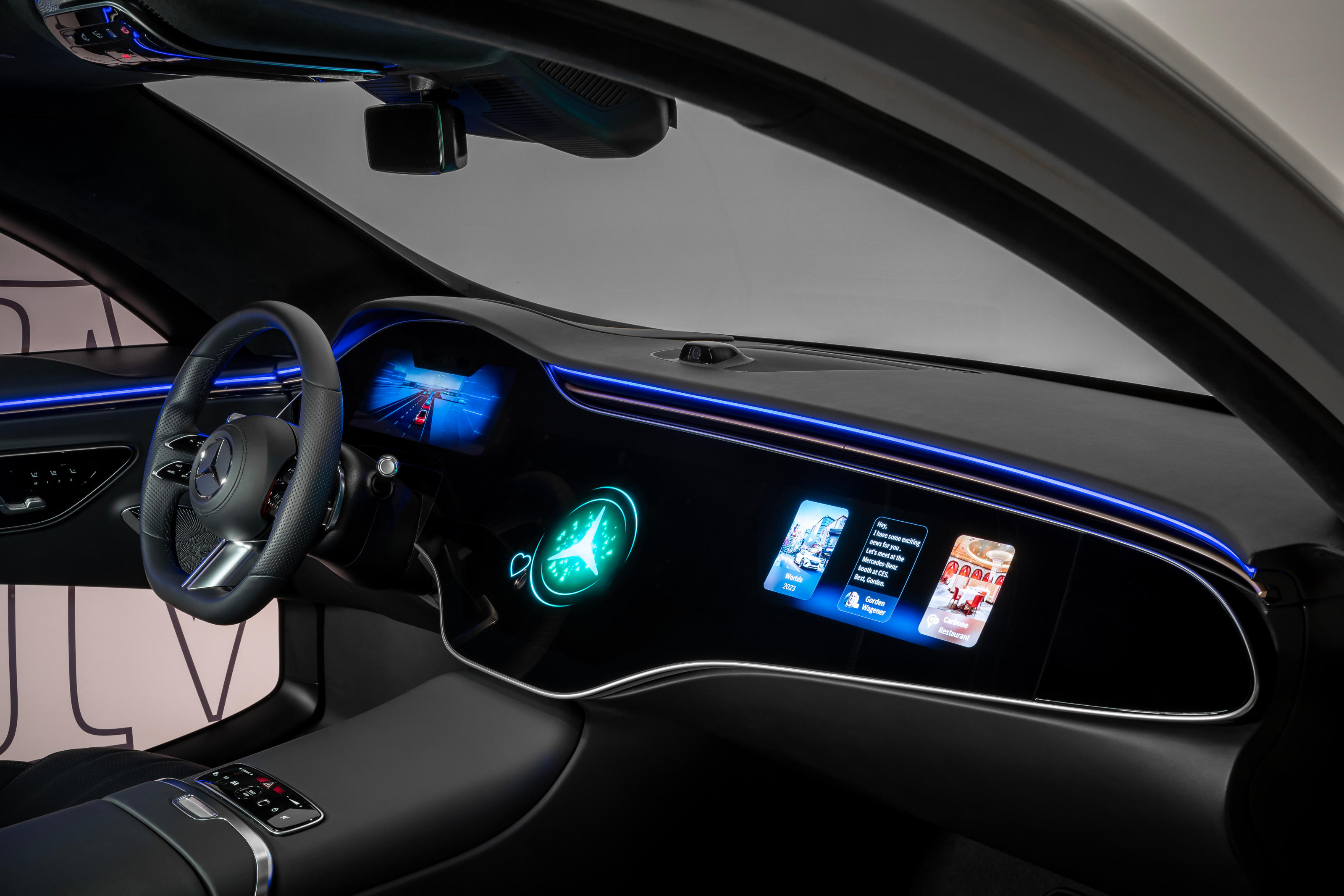
Mercedes-Benz's new user interface
Mercedes-Benz unveiled a clutch of innovations at CES 2024, starting with the announcement of a new, AI-powered virtual assistant. The company is making much of the power of its new user interface, which will debut in this year’s new CLA model (based on last year’s CLA Concept). The MB.OS infotainment system is an evolution of the dashboard-wide screens that arrived with the company’s first EQ models a couple of years ago, only now they have a generative AI assistant that’s said to offer a ‘hyper-personalised user experience’. No longer will you endlessly have to repeat ‘Hey Mercedes’ to get the car to do a simple task.
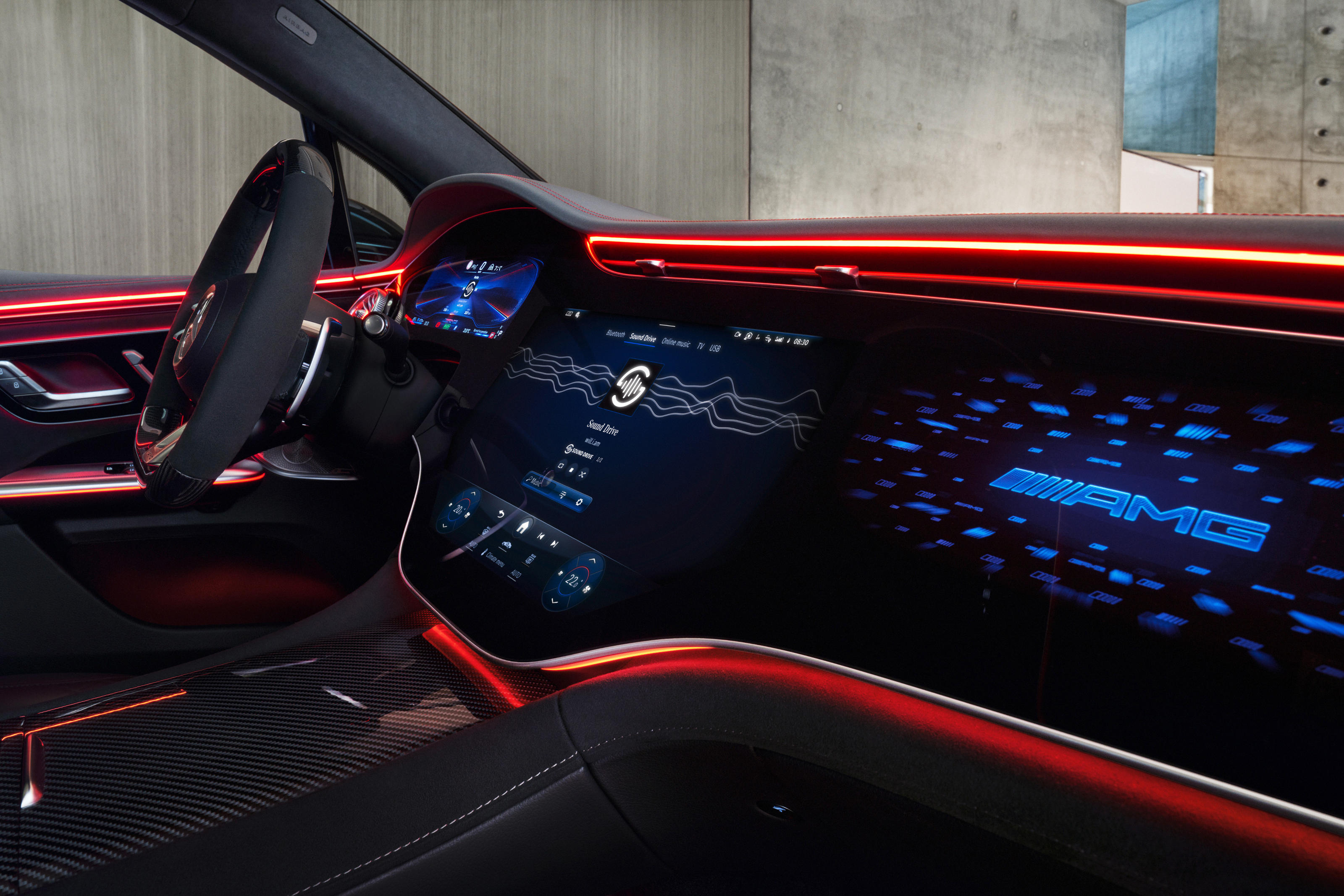
Mercedes-AMG's collaboration with Will.i.am
Mercedes also unveiled a collaboration with Will.i.am, having invited the musician and occasional tech entrepreneur to create something a little different for the Mercedes-AMG performance sub-brand. Sound Drive is the result, an interactive instrument that uses sensors and software to ‘turn the car into an instrument’. Think of it as an evolution of the endlessly generative music originally developed for video games, making it one more step along the road to the gamification of travel.
BMW introduces a world of in-car entertainment
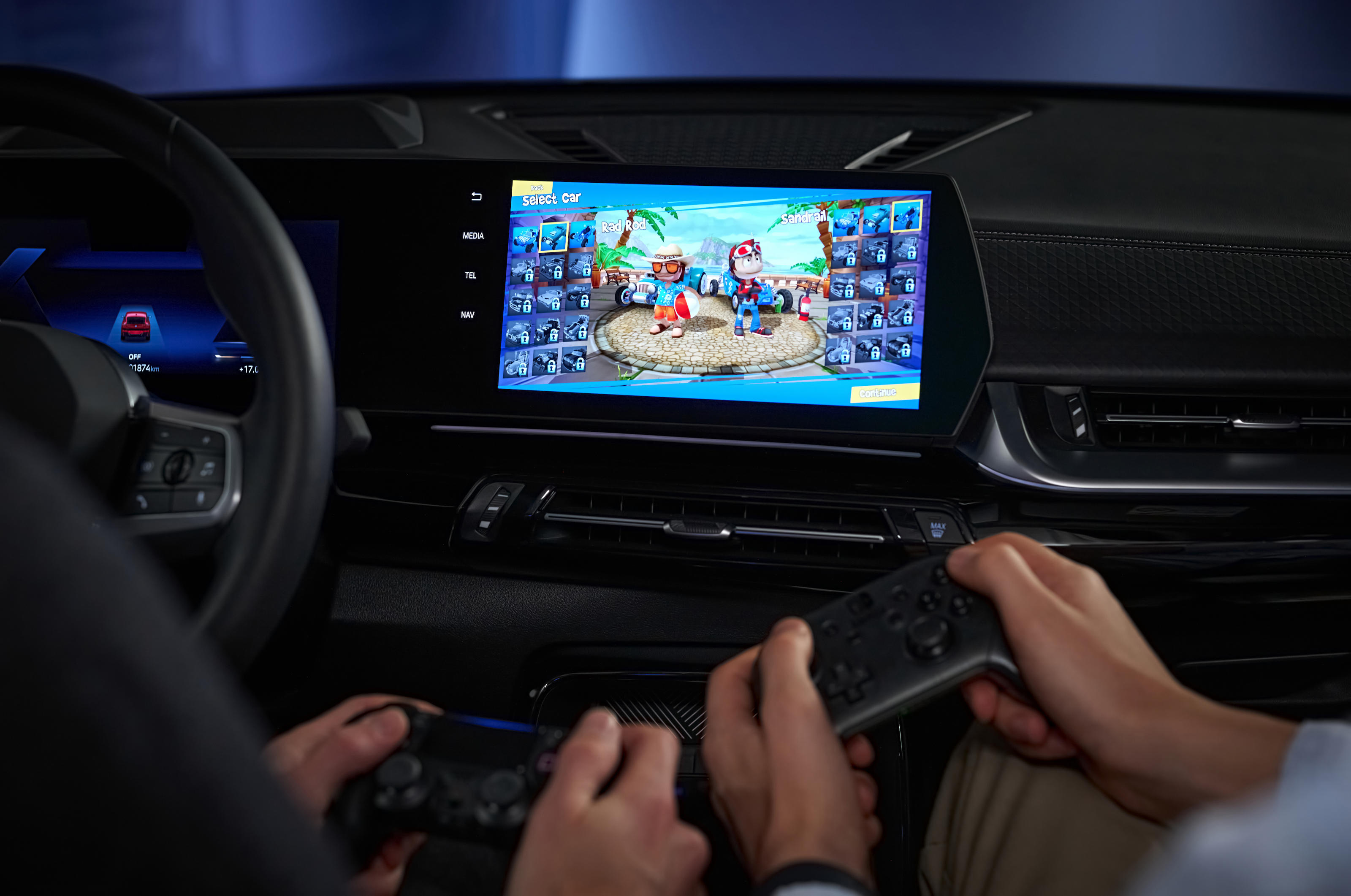
BMW OS9 with onboard gaming
BMW hopes that the ninth iteration of its in-car Operating System will have as much impact as the original iDrive did when it was introduced back in 2001. BMW OS9 is yet another implementation of a large language model (LLM) in an automotive context, although BMW has gone straight to the top with the use of Alexa’s LLM. Other new features include the future AR Ride, an augmented reality-based navigation system (developed with XREAL) that overlays navigation content onto the driver’s AR glasses.
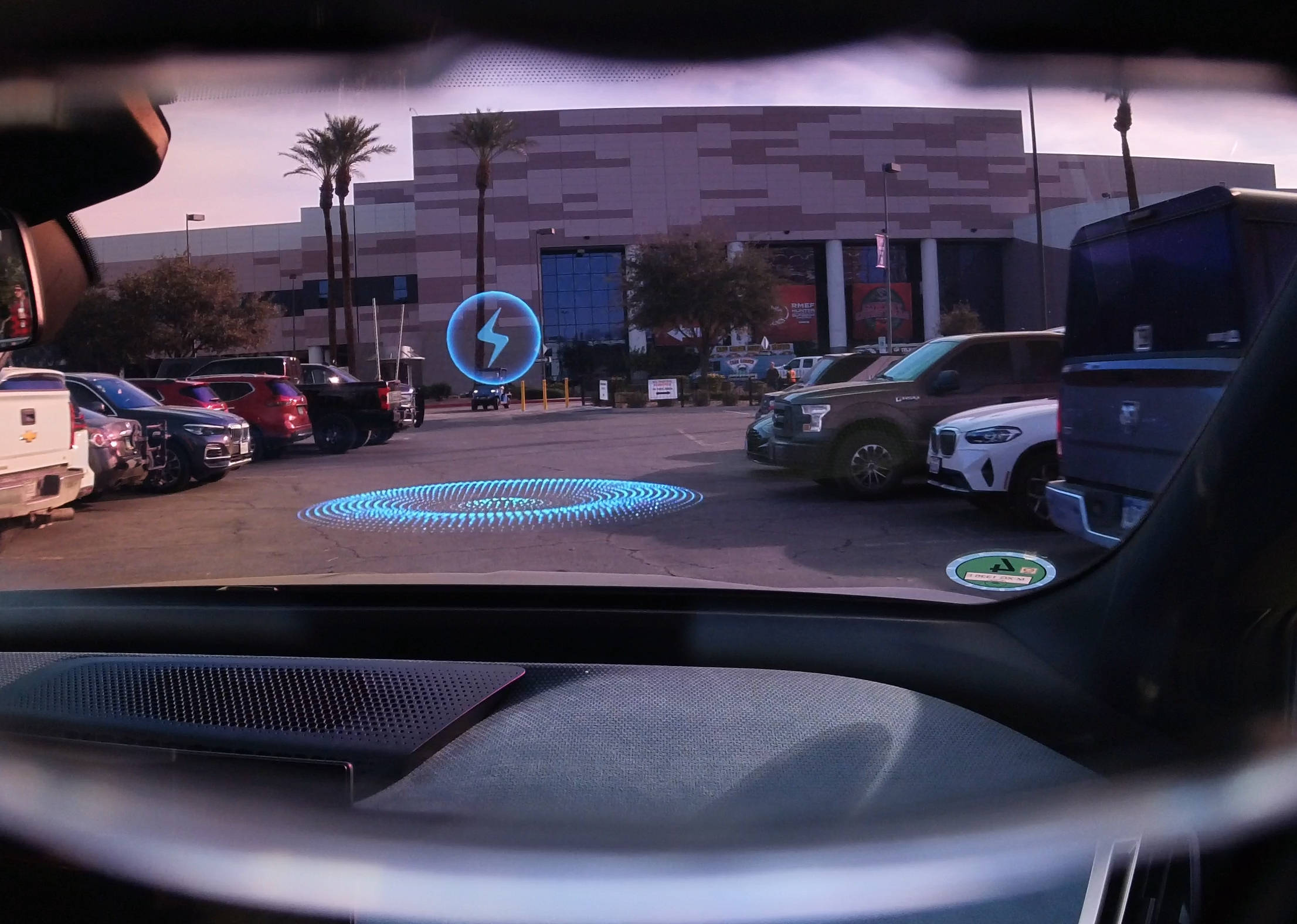
BMW OS9 with AR navigation
In addition, there was the introduction of BMW Digital Premium, essentially giving passenger’s access to third party apps like music, audio and gaming (the latter using regular gaming controllers) – all of which will be a boon for anyone lucky enough to use the massive rear screen in the back of the BMW i7. Finally, a very American application for computer-controlled driving tech was also on display; remote control valet parking.
Sony Honda Mobility update the Afeela EV
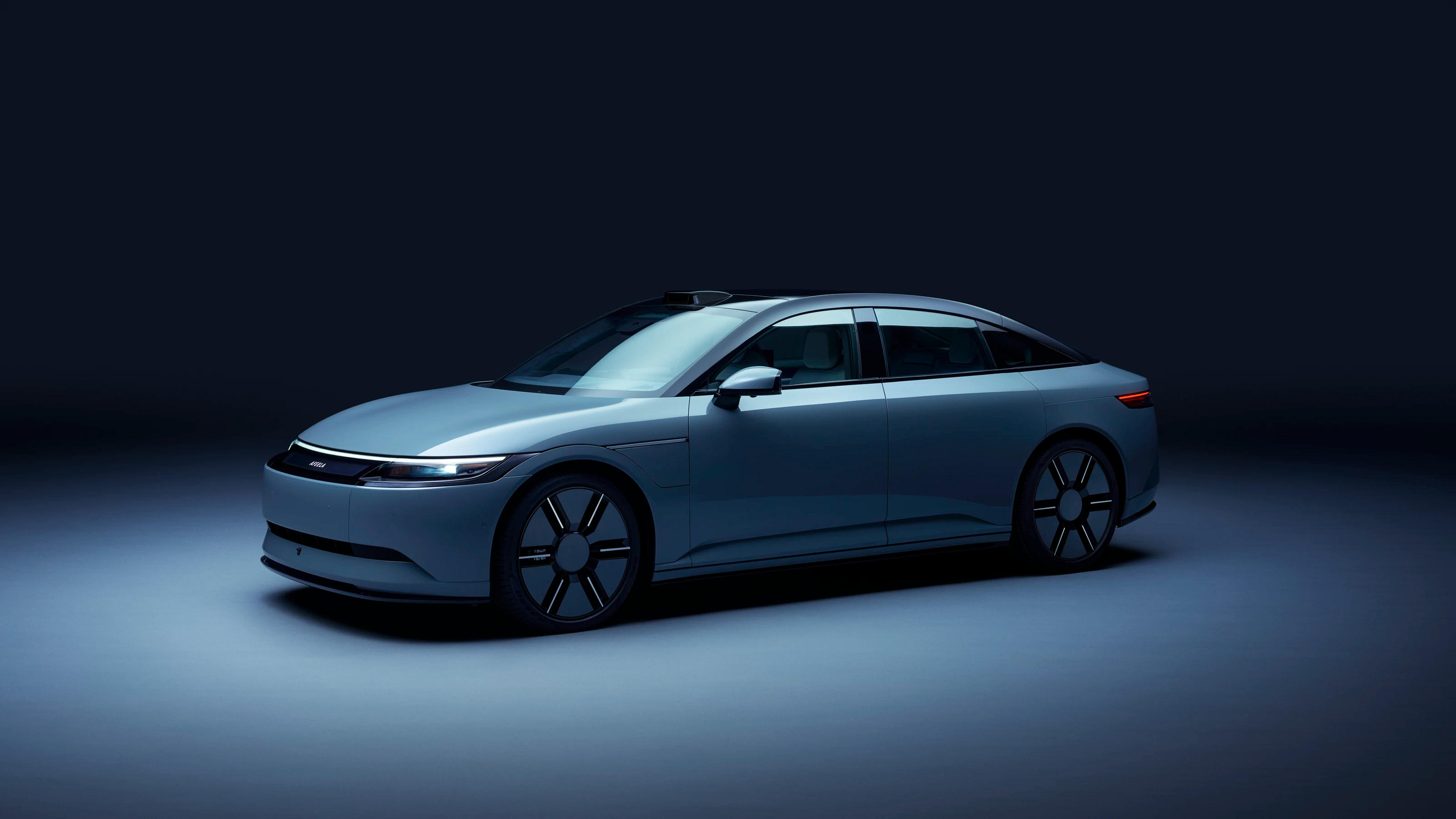
Sony Afeela EV concept
In 2023, a surprise hook-up was unveiled in the form of Sony-Honda Mobility. The new company showed off its first product, the Afeela, with no hint of any production viability or timescale. The Afeela was back for CES 2024, suitably upgraded with fresh collaborations with Qualcomm (for computing power) and Microsoft (for, you guessed it, AI integration).
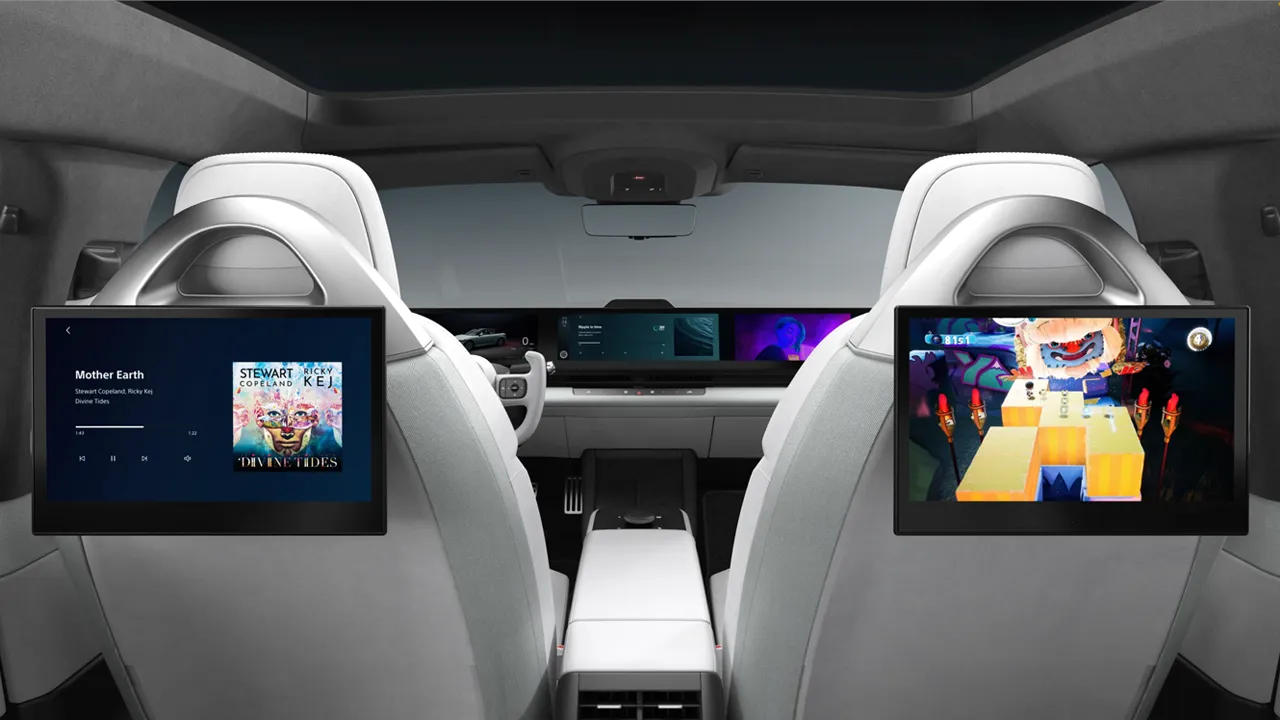
Sony Afeela EV concept interior
All this silicon is intended to give the car more of a personality and purpose, with screens and sensors aplenty. There are no distinct visual changes – the Afeela is still an elegant, smooth super saloon – but plenty of questions about how well the worlds of big data and big mobility are going to play together when the time comes, and what it means for the humble consumer who just wants to go from A to B with minimum fuss.
Harman shakes up screen design
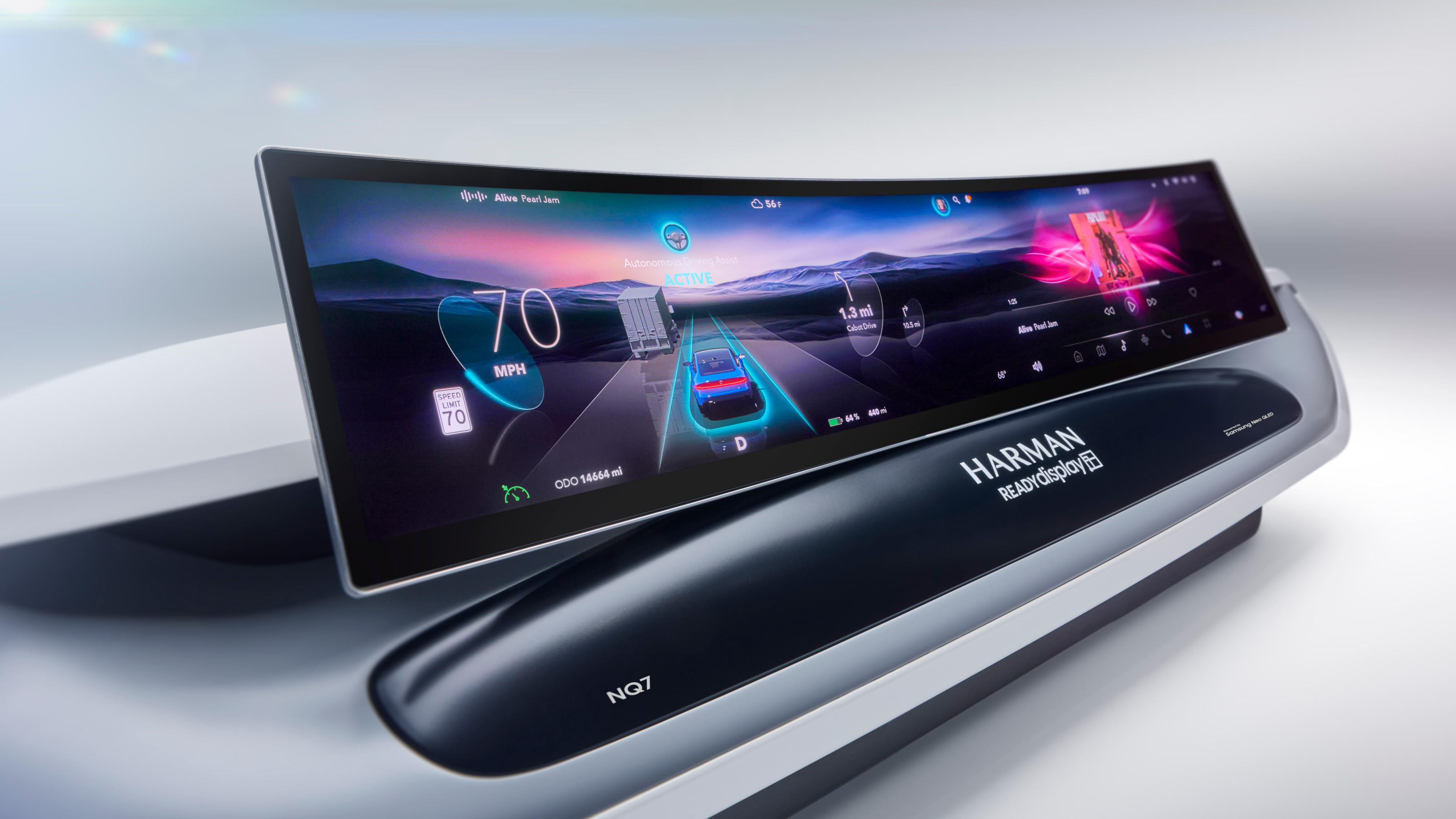
Harman Ready Display with Samsung screen technology
American car component manufacturer Harman (owned by Samsung since 2017) used the show to highlight innovations in interior design and information screens. The company’s new Ready Display is available in a number of different sizes, including a curved format, and uses Samsung’s Neo QLED technology for high res, rich colour graphics. It also showed the SeatSonic system, a way of integrating audio into the structure of a seat to enhance the listening experience.
Bosch and Amazon unite to fight inefficiency
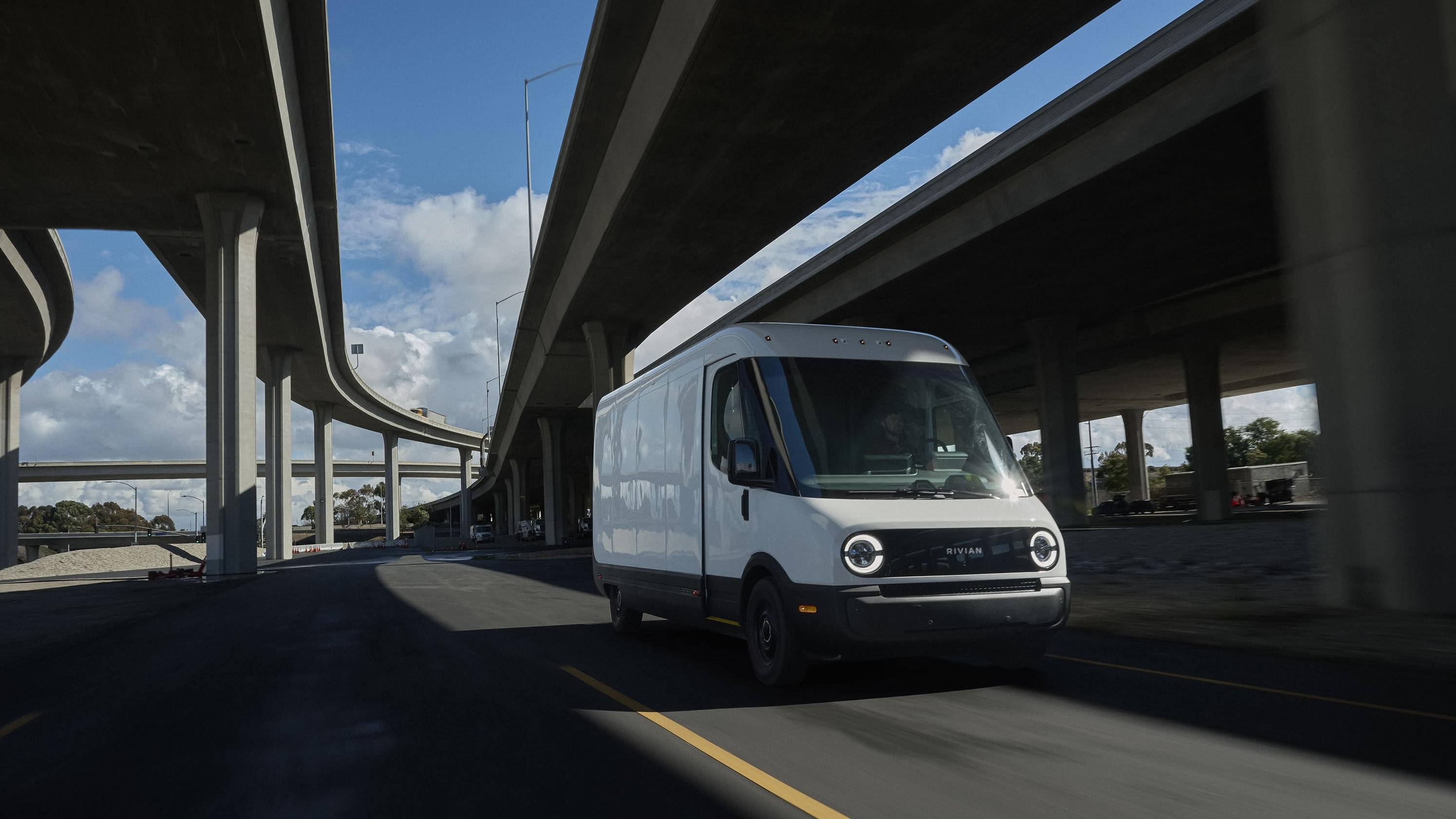
Rivian Commercial Van
In yet another example of a technological innovation that generates more questions than answers, industry super supplier Bosch announced a partnership with Amazon Web Services to track drivers' eye movements in order to predict and pre-empt their needs.
The system could well be another example of Amazon’s habit of trialling labour-saving devices on its long-suffering workforce, as the first customers are predicted to be its own fleet of delivery drivers. Some of the proffered stats are alarming – in Bosch’s native Germany, ‘more than 150 million [cargo vehicle] trips are empty runs, which adds up to more than 6.5 billion empty kilometres annually, or more than 160,000 unnecessary journeys around the Earth.’
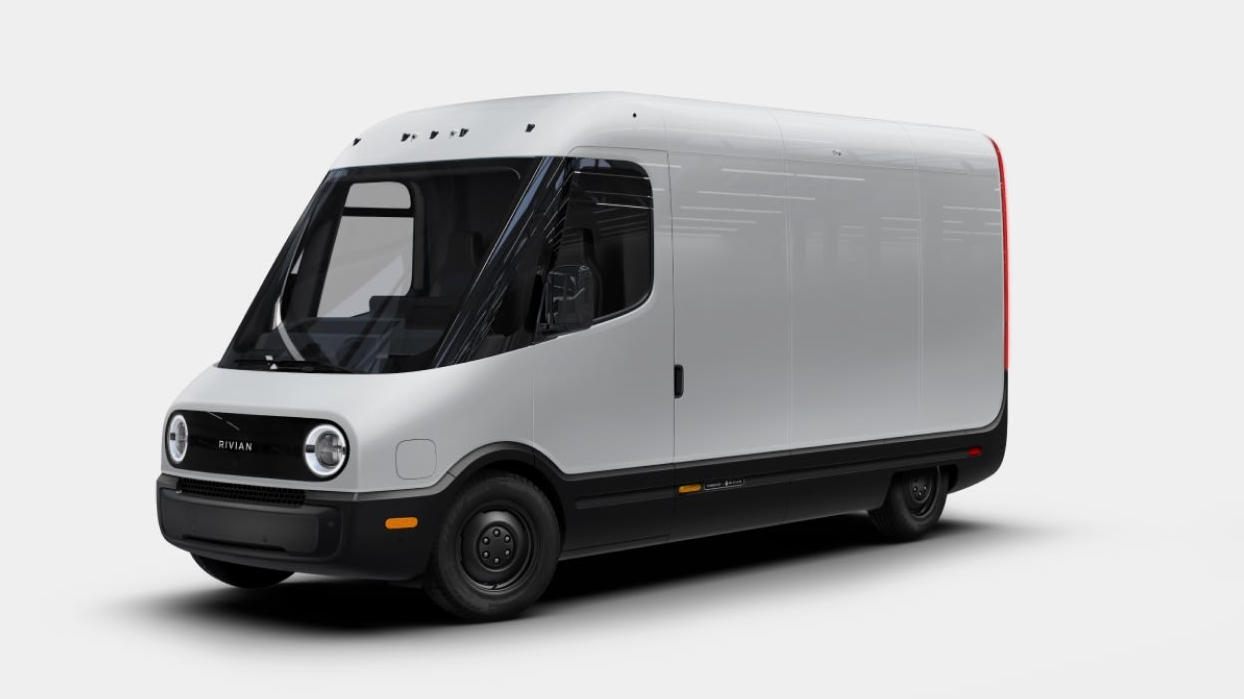
Rivian Commercial Van
Amazon is certainly making a dent in these figures with its ongoing partnership with Rivian; the company now has 10,000 of the unique EV vans on its US fleet, with a commitment to electrify its entire delivery fleet of 100,00 vehicles by 2030. Germany is the most recent market to receive these machines, designed specifically for Amazon by the Californian EV maker. Rivian, best known for its R1T pick-up truck, is now offering the bespoke EV van to all buyers as the Rivian Commercial Van.
Bosch-Mobility.com, AboutAmazon.com, Rivian.com
Jonathan Bell has written for Wallpaper* magazine since 1999, covering everything from architecture and transport design to books, tech and graphic design. He is now the magazine’s Transport and Technology Editor. Jonathan has written and edited 15 books, including Concept Car Design, 21st Century House, and The New Modern House. He is also the host of Wallpaper’s first podcast.